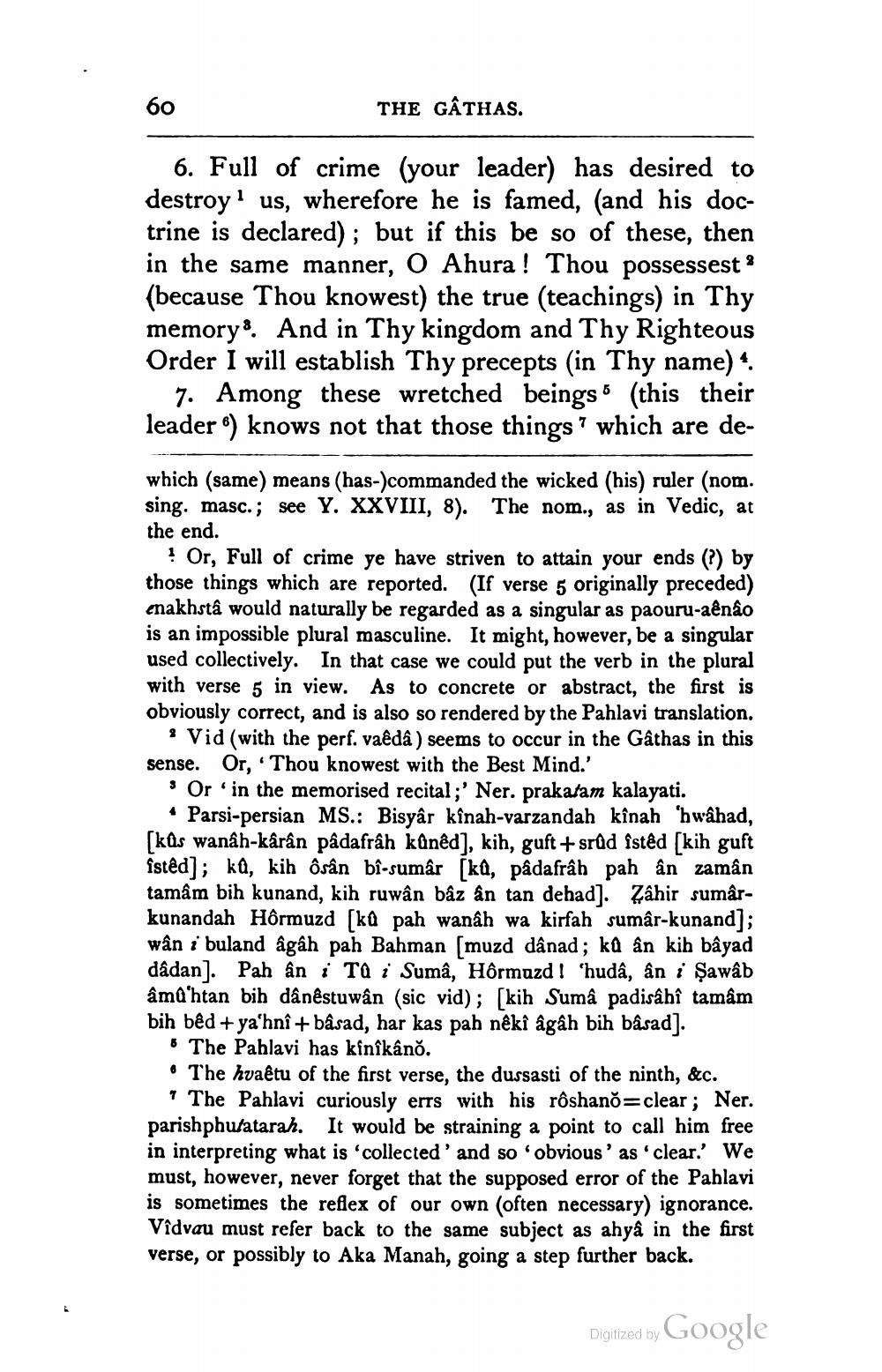________________
60
THE GÂTHAS.
6. Full of crime (your leader) has desired to destroy us, wherefore he is famed, (and his doctrine is declared); but if this be so of these, then in the same manner, O Ahura ! Thou possessest (because Thou knowest) the true (teachings) in Thy memory. And in Thy kingdom and Thy Righteous Order I will establish Thy precepts (in Thy name)
7. Among these wretched beings 6 (this their leader) knows not that those things which are de
which (same) means (has-)commanded the wicked (his) ruler (nom. sing. masc.; see Y. XXVIII, 8). The nom., as in Vedic, at the end.
? Or, Full of crime ye have striven to attain your ends (?) by those things which are reported. (If verse 5 originally preceded) enakhstâ would naturally be regarded as a singular as paouru-aènão is an impossible plural masculine. It might, however, be a singular used collectively. In that case we could put the verb in the plural with verse 5 in view. As to concrete or abstract, the first is obviously correct, and is also so rendered by the Pahlavi translation.
? Vid (with the perf. vaêda) seems to occur in the Gathas in this sense. Or, Thou knowest with the Best Mind.'
• Or in the memorised recital;' Ner. prakałam kalayati.
• Parsi-persian MS.: Bisyâr kînah-varzandah kînah 'hwahad, skûs wanâh-kârân pâdafrâh kūned), kih, guft + srüd isted skih guft îstêd]; ků, kih ôsân bî-sumar [kg, pâdafrâh pah ân zaman tamâm bih kunand, kih ruwân bâz ân tan dehad). Zâhir sumârkunandah Hôrmuzd (ka pah wanâh wa kirfah sumâr-kunand]; wân i buland âgâh pah Bahman (muzd dânad; ka ân kih bâyad dâdan). Pah ân i TQ i Sumâ, Hôrmazd! 'huda, ân í Şawâb âma'htan bih dânêstuwân (sic vid); [kih Sumâ padisâhî tamam bih bêd + ya'hni + bâsad, har kas pah nêkî âgâh bih bâsad].
8 The Pahlavi has kinikano. • The hvaêtu of the first verse, the dussasti of the ninth, &c.
* The Pahlavi curiously erts with his rôshano=clear; Ner. parishphutatarah. It would be straining a point to call him free in interpreting what is 'collected' and so obvious' as 'clear.' We must, however, never forget that the supposed error of the Pahlavi is sometimes the reflex of our own (often necessary) ignorance. Vîdvau must refer back to the same subject as ahyâ in the first verse, or possibly to Aka Manah, going a step further back.
Digitized by
Digitized by Google




